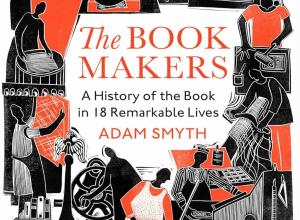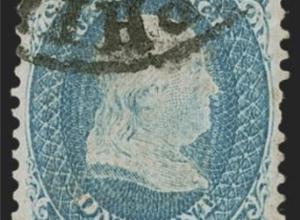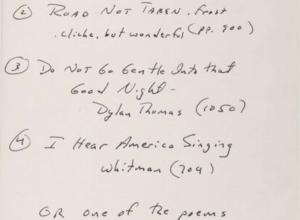October 2013 |
Guest Blog: A Trove of MLK, Jr. Material Surfaces
Guest Blog: A Trove of MLK, Jr. Material Surfaces by Bryan Booher of Heritage Auctions
The Civil Rights Movement was arguably the most pivotal event in twentieth-century American social history. And sadly, one of which I knew little (shhh, don't tell my boss!). When I was first presented with the prospect of researching and cataloguing an extensive--and I stress extensive--collection of Civil Rights material focused around, but not limited to, Dr. Martin Luther King, Jr., and the Montgomery Improvement Association (MIA), I was apprehensive. Sure, I knew the main players and some of the major events: Rosa Parks, the Montgomery Bus Boycott, the March on Washington, the "I Have a Dream Speech," and King's tragic demise in Memphis, Tennessee, on April 4, 1968. But I felt some reluctance because of my own ethnic background: I'm your typical white, middle-class, Anglo-Saxon (or close enough), Protestant. And I'm from the South. It sounds silly. I'm trained as an historian, how can that possibly present a problem? I suppose it's because of the profound impact the Civil Rights Movement has had, and continues to have, on American society. How do I convey genuine respect for something so central to the history of black Americans (and indeed all minority groups in the United States)? Then it dawned on me. No one is going to know my skin color, and it doesn't really matter. So I got the material and dove in head first. After doing some cursory research I realized this isn't just the story of African Americans fighting for equality. The movement is about freedom for ALL men, of all races, creeds, sex, and sexual orientation, with the black community taking the lead in that fight. I found myself, as I delved deeper, both fascinated from a historical perspective and inspired as a human being.
This particular collection of items (over thirty-eight individual lots [lots 34512-34550], some of which I will highlight below) comes from the personal papers of one extraordinary woman, Mrs. Maude Ballou. She acted as Dr. King's personal secretary during his time in Montgomery as the national face of the bus boycott (December 1, 1555, through December 20, 1956) and pastor of the Dexter Avenue Baptist Church. She was also his close friend. Ballou has kept these treasures for over five decades, and she has some awesome stuff! Here are some of my personal favorites.
 In late 1959, Dr. King had decided it was time to move back to his hometown of Atlanta, Georgia, and take the reins as president of the Southern Christian Leadership Conference full-time (he had actually led the group since 1957 and would continue to do so until his death). He broke the news to his parish and said farewell in the form of a speech. We are beyond excited to have the actual notecards containing the talking points (pictured above) for that very speech, written entirely in the hand of Dr. King!
In late 1959, Dr. King had decided it was time to move back to his hometown of Atlanta, Georgia, and take the reins as president of the Southern Christian Leadership Conference full-time (he had actually led the group since 1957 and would continue to do so until his death). He broke the news to his parish and said farewell in the form of a speech. We are beyond excited to have the actual notecards containing the talking points (pictured above) for that very speech, written entirely in the hand of Dr. King!
As a student of Gandhi's principles of non-violent civil resistance, Dr. King went on a five-week tour of India in February 1959. Ever the busy body, he sent letters home to Ballou directing affairs of the movement in his absence. We have two of those important letters; one is dated February 27, 1959, the other is undated, but from around the same time.
Looking for something a little more unique? How about the first letter opener used by the MIA during the bus boycott or the 1957 desk calendar used at MIA headquarters? The calendar is exceptional in that it contains notes for meetings with politicians, including then Vice President Richard Nixon and fellow civil rights and religious leaders such as E. D. Nixon, Bayard Rustin, and Billy Graham, plus Dr. King's speaking engagements, appointments, etc.
 One thing that never occurred to me was the existence of opposition to the bus boycott, not by the white community, but by members of the black community. I was astounded to discover a flyer titled "Are You Tired of Walking?" (pictured above) accusing the leaders of the boycott of "playing us for suckers while they get rich on our money" and expressing the cynical attitude that "there isn't a chance in the world of breaking segregation in Montgomery." How wrong they were!
One thing that never occurred to me was the existence of opposition to the bus boycott, not by the white community, but by members of the black community. I was astounded to discover a flyer titled "Are You Tired of Walking?" (pictured above) accusing the leaders of the boycott of "playing us for suckers while they get rich on our money" and expressing the cynical attitude that "there isn't a chance in the world of breaking segregation in Montgomery." How wrong they were!
Bryan Booher is manager of historical manuscripts & Texana at Heritage Auctions in Dallas.
Images Courtesy of Heritage Auctions.
The Civil Rights Movement was arguably the most pivotal event in twentieth-century American social history. And sadly, one of which I knew little (shhh, don't tell my boss!). When I was first presented with the prospect of researching and cataloguing an extensive--and I stress extensive--collection of Civil Rights material focused around, but not limited to, Dr. Martin Luther King, Jr., and the Montgomery Improvement Association (MIA), I was apprehensive. Sure, I knew the main players and some of the major events: Rosa Parks, the Montgomery Bus Boycott, the March on Washington, the "I Have a Dream Speech," and King's tragic demise in Memphis, Tennessee, on April 4, 1968. But I felt some reluctance because of my own ethnic background: I'm your typical white, middle-class, Anglo-Saxon (or close enough), Protestant. And I'm from the South. It sounds silly. I'm trained as an historian, how can that possibly present a problem? I suppose it's because of the profound impact the Civil Rights Movement has had, and continues to have, on American society. How do I convey genuine respect for something so central to the history of black Americans (and indeed all minority groups in the United States)? Then it dawned on me. No one is going to know my skin color, and it doesn't really matter. So I got the material and dove in head first. After doing some cursory research I realized this isn't just the story of African Americans fighting for equality. The movement is about freedom for ALL men, of all races, creeds, sex, and sexual orientation, with the black community taking the lead in that fight. I found myself, as I delved deeper, both fascinated from a historical perspective and inspired as a human being.
This particular collection of items (over thirty-eight individual lots [lots 34512-34550], some of which I will highlight below) comes from the personal papers of one extraordinary woman, Mrs. Maude Ballou. She acted as Dr. King's personal secretary during his time in Montgomery as the national face of the bus boycott (December 1, 1555, through December 20, 1956) and pastor of the Dexter Avenue Baptist Church. She was also his close friend. Ballou has kept these treasures for over five decades, and she has some awesome stuff! Here are some of my personal favorites.
 In late 1959, Dr. King had decided it was time to move back to his hometown of Atlanta, Georgia, and take the reins as president of the Southern Christian Leadership Conference full-time (he had actually led the group since 1957 and would continue to do so until his death). He broke the news to his parish and said farewell in the form of a speech. We are beyond excited to have the actual notecards containing the talking points (pictured above) for that very speech, written entirely in the hand of Dr. King!
In late 1959, Dr. King had decided it was time to move back to his hometown of Atlanta, Georgia, and take the reins as president of the Southern Christian Leadership Conference full-time (he had actually led the group since 1957 and would continue to do so until his death). He broke the news to his parish and said farewell in the form of a speech. We are beyond excited to have the actual notecards containing the talking points (pictured above) for that very speech, written entirely in the hand of Dr. King!As a student of Gandhi's principles of non-violent civil resistance, Dr. King went on a five-week tour of India in February 1959. Ever the busy body, he sent letters home to Ballou directing affairs of the movement in his absence. We have two of those important letters; one is dated February 27, 1959, the other is undated, but from around the same time.
Looking for something a little more unique? How about the first letter opener used by the MIA during the bus boycott or the 1957 desk calendar used at MIA headquarters? The calendar is exceptional in that it contains notes for meetings with politicians, including then Vice President Richard Nixon and fellow civil rights and religious leaders such as E. D. Nixon, Bayard Rustin, and Billy Graham, plus Dr. King's speaking engagements, appointments, etc.
 One thing that never occurred to me was the existence of opposition to the bus boycott, not by the white community, but by members of the black community. I was astounded to discover a flyer titled "Are You Tired of Walking?" (pictured above) accusing the leaders of the boycott of "playing us for suckers while they get rich on our money" and expressing the cynical attitude that "there isn't a chance in the world of breaking segregation in Montgomery." How wrong they were!
One thing that never occurred to me was the existence of opposition to the bus boycott, not by the white community, but by members of the black community. I was astounded to discover a flyer titled "Are You Tired of Walking?" (pictured above) accusing the leaders of the boycott of "playing us for suckers while they get rich on our money" and expressing the cynical attitude that "there isn't a chance in the world of breaking segregation in Montgomery." How wrong they were!Bryan Booher is manager of historical manuscripts & Texana at Heritage Auctions in Dallas.
Images Courtesy of Heritage Auctions.















